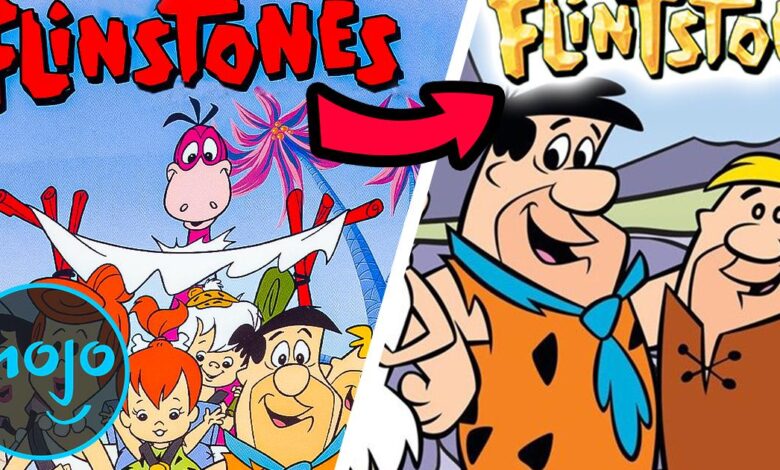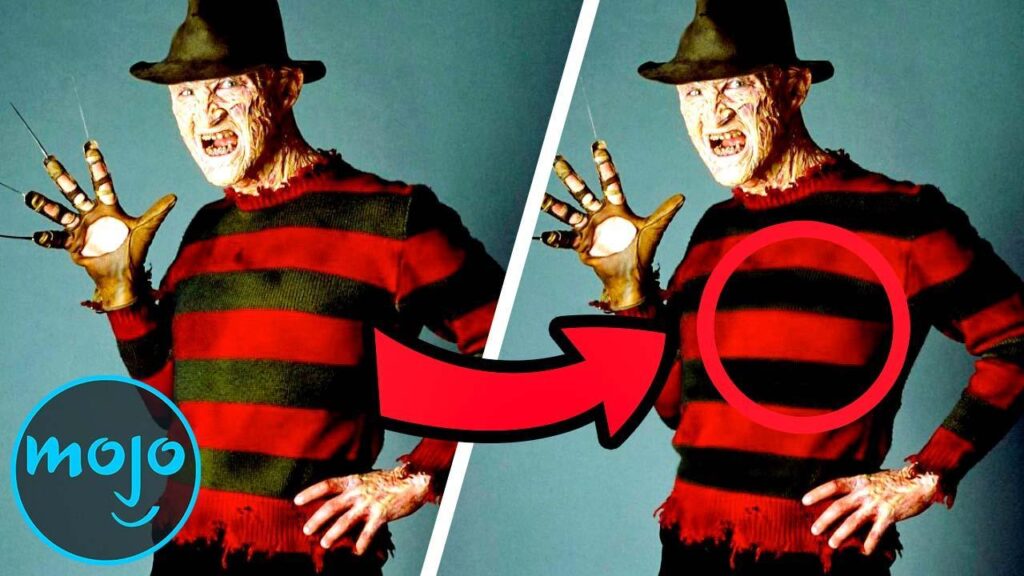Exploring the Mandela Effect Movie: A Fascinating Dive into Collective Misremembering

Introduction to the Mandela Effect
The Mandela Effect Movie refers to a fascinating psychological phenomenon where a large group of people remembers an event, fact, or detail differently from the historical record. The term originated in 2009 when Fiona Broome, a paranormal consultant, discovered that she, along with many others, falsely remembered Nelson Mandela dying in prison during the 1980s. Despite his actual release and later life, this collective misremembering sparked widespread interest and discussion, leading to the conceptualization of what we now know as the Mandela Effect.
This intriguing concept has found its way into popular culture, with the Mandela Effect movie genre gaining traction as filmmakers explore the complexities of shared false memories. The phenomenon goes beyond just historical events; it can extend to various cultural references, such as brand names, popular quotes, and even character identities from classic books and films. For instance, many people incorrectly remember the line from the movie “Star Wars” as “Luke, I am your father,” when the actual line is “No, I am your father.” Such discrepancies highlight the fallibility of human memory and the potential for large groups to recall the same inaccuracies.
Overview of the Mandela Effect Movie
The Mandela Effect movie presents a captivating exploration of the phenomenon where large groups of people remember events, facts, or details differently from how they occurred in reality. Released in 2019, the film is directed by David Guy Levy and centers around an intriguing plot that delves into the psychological implications of collective misremembering. The narrative follows the character of Craig, played by veteran actor Charlie Hofheimer, who experiences a form of existential crisis after discovering that his memories contrast sharply with the reality around him.
As the story unfolds, Craig begins to notice discrepancies in the memories shared by him and others, particularly surrounding iconic cultural references and historical events. This narrative device serves not only to entertain but also to invite viewers to reflect on their personal experiences with memory and perception. The film offers a unique blend of psychological thriller and science fiction, effectively drawing the audience into the complexities surrounding human cognition.
The film features a diverse cast, including actors such as Afton Williamson and David S. Lee, who each contribute to the overarching theme of the movie: questioning the reliability of memory. Its production employed a thoughtful approach to cinematography, utilizing atmospheric visuals and sound design to enhance the emotional weight of the storyline. Upon its release, the Mandela Effect movie received mixed reviews from critics, with some praising its imaginative premise while others found fault in its execution. Nonetheless, it has sparked discussions about the broader implications of the Mandela Effect on society, establishing it as a relevant piece within the discourse of memory accuracy and collective understanding.
Key Themes and Messages in the Movie
The Mandela Effect movie delves into several compelling themes that resonate deeply with audiences, primarily focusing on the nature of collective memory and how it shapes our understanding of reality. One of the film’s central themes is the exploration of how large groups of people can remember events, facts, or details differently from established history. This phenomenon, known as the Mandela Effect, illustrates the fragility of human memory and serves as a case study in how shared recollections can influence individual perceptions of reality.
Furthermore, the film examines the implications of alternate timelines and realities. The narrative posits the idea that if collective memory can be altered or manipulated, it raises questions about the authenticity of our experiences and our belief systems. Viewers are invited to consider whether what we perceive as reality is merely a construct influenced by external forces. This theme challenges the audience to reflect on their own memories and whether they, too, might be subject to a shared misremembering.
Another significant theme present in the Mandela Effect movie is the psychological impact of grappling with contrasting realities. As characters realize that their memories clash with widely accepted facts, they experience confusion, anxiety, and a crisis of identity. This emotional turmoil becomes a strong message about the human condition, highlighting our struggle to find meaning and consistency in a world where the past may no longer align with our recollections.
Ultimately, the film encourages viewers to explore their perceptions of reality, the integrity of their memories, and the broader implications of collective misremembering. By engaging with these themes, the Mandela Effect movie not only entertains but also provokes thought on the complexities of memory and the nature of human experience.
Notable Examples of the Mandela Effect Illustrated in the Movie
The exploration of the Mandela Effect movie provides a riveting look into various instances where collective misremembering occurs. Among the prominent examples, the infamous line from the Star Wars franchise, “Luke, I am your father,” serves as a significant case. Many fans recall this line, yet the actual dialogue is, “No, I am your father.” This discrepancy exemplifies how shared memories can diverge from reality, showcasing the film’s theme of collective misperception.
Another well-known example featured is the Berenstain Bears, a beloved children’s book series that many people vividly recall as the “Berenstein Bears.” The difference in spelling highlights the phenomenon wherein individuals confidently assert an incorrect version of the past. This case not only serves as a nostalgic reference for viewers but also deepens their understanding of the intricacies of memory and belief in the context of the Mandela Effect movie.
Overall, these examples serve not only to entertain but also to educate the audience regarding the peculiarities of collective memory. The myriad instances of misrecalling various facets of popular culture build a bridge between entertainment and cognitive science, prompting viewers to reflect on their own experiences with the Mandela Effect.
Comparative Analysis with Other Films on Psychological Phenomena
The Mandela Effect movie stands as a compelling exploration of collective misremembering, drawing viewers into the intricate web of memory and reality. When compared to other cinematic works that delve into psychological phenomena, such as ‘Inception’ and ‘The Others,’ several thematic and stylistic parallels emerge. Both ‘Inception’ and the Mandela Effect movie juxtapose the boundaries of reality and perception, prompting audiences to question what is genuinely real versus what is merely a construct of the mind.
In ‘Inception,’ Christopher Nolan employs intricate storytelling techniques that weave through layers of dreams and subconscious thought. Similarly, the Mandela Effect movie uses narrative complexity to delve into the shared memories of a group of individuals, fostering a dialogue about the reliability of memory. Both films highlight the intricacies of human cognition, with ‘Inception’ focusing more on the nuances of dreams and the subconscious, whereas the Mandela Effect movie scrutinizes collective memory and its implications for society.
Moreover, ‘The Others,’ a psychological thriller that explores themes of perception and reality, echoes similar motifs present in the Mandela Effect movie. In both films, the protagonists grapple with their understanding of reality, compelling the audience to reconsider what they perceive as truth. The storytelling in ‘The Others’ employs suspense and gradual revelation to unveil its psychological depth, paralleling how the Mandela Effect movie unravels as various characters confront their own experiences of collective memory distortion.
These comparative elements illustrate the broader cinematic trend of exploring psychological nuances through compelling narratives. Each of these films, including the Mandela Effect movie, uniquely contributes to the discourse surrounding memory, identity, and reality, engaging audiences to reflect on their personal perceptions.
Audience Reception and Critical Reviews
The reception of the Mandela Effect movie has been a topic of intrigue since its release, eliciting a wide range of reactions from both audiences and critics alike. Many viewers have praised the film for its thought-provoking exploration of the phenomenon, which revolves around the concept of collective misremembering. This theme resonates with audiences who have experienced moments of confusion regarding widely accepted memories that differ from their personal recollections. The film adeptly illustrates how these shared yet flawed memories can shape our understanding of reality.

Critics, however, have offered a more mixed review of the movie. Some have applauded its innovative storytelling and its ability to blend psychological drama with elements of science fiction. They emphasize how the Mandela Effect movie portrays not just the subjective nature of memory but also touches upon existential questions surrounding truth and perception. In contrast, a segment of critics has criticized the film for its pacing and character development, arguing that these aspects detract from the profound themes it seeks to explore. Critics point out that while the basic premise is engaging, the execution sometimes feels lacking.
Audience interpretations of the film’s themes reveal a deep engagement with its core message. Many viewers find themselves drawn to the film’s exploration of how memory functions and its implications on their everyday lives. Personal anecdotes and discussions have emerged on social media, with viewers sharing their own experiences of encountering the Mandela Effect in real life, thus demonstrating the film’s success in sparking conversation. This blend of critical and audience responses indicates that the Mandela Effect movie has succeeded in raising awareness about the complexities of memory while also providing a platform for broader discussions about perception and reality.
Real-life Implications of the Mandela Effect
The Mandela Effect, a phenomenon where large groups of people remember an event or detail differently from established reality, can have significant psychological and societal implications. This curious occurrence raises profound questions regarding individual perception and collective memory. When a sizable number of individuals distinctly remember specific events or cultural references, as depicted in various media, including the captivating Mandela Effect Movie, it prompts a deeper exploration into the nature of memory itself.
Psychologically, the Mandela Effect illustrates how malleable human memory can be. Individual perceptions may be influenced by social interaction, peer reinforcement, or exposure to media that misrepresents facts. This particular distortion of memory can lead to confusion, affecting how individuals interpret reality and their surrounding environment. When multiple people recall inaccuracies, it brings forth a unique challenge; for instance, discussions and debates can become muddled, leading to a misinformed consensus. The implications of this misremembering extend into broader societal discussions, where facts may be overshadowed by collective belief, thus affecting public opinion and decision-making processes.
Cultural memories are particularly susceptible to shifting as they evolve over time. The retelling of historical events or popular narratives can be inadvertently altered through repeated storytelling, a common theme explored in the Mandela Effect Movie. This phenomenon can foster a shared sense of identity, albeit based on flawed recollections. Moreover, it highlights the importance of critical thinking and historical literacy—encouraging individuals to seek accurate information rather than relying solely on collective memories that may be skewed.
As we navigate the complexities of the Mandela Effect, it becomes increasingly clear that understanding this collective misremembering not only enriches our appreciation of shared experiences but also urges vigilance regarding the information we accept as truth.
Future of the Mandela Effect in Pop Culture
The Mandela Effect has emerged as a compelling phenomenon that captures the intersection between memory, perception, and storytelling. As audiences increasingly engage with this phenomenon, particularly evident in recent films and series, it is likely that the future representation of the Mandela Effect in pop culture will continue to evolve. Filmmakers and content creators are continuously seeking innovative ways to captivate their audiences, and utilizing the intricacies of collective misremembering offers rich narrative possibilities.
The growing intrigue surrounding the Mandela Effect movie highlights the potential for filmmakers to weave intricate plots that explore various dimensions of shared false memories. By creating narratives that challenge viewers’ perceptions of reality, filmmakers could engage audiences on a deeper emotional level. This exploration of misremembering could not only serve as entertainment but also prompt reflections on the nature of human memory and the forces that shape collective consciousness.
In addition to traditional cinematic formats, the manifestation of the Mandela Effect in other forms of media, such as television series, video games, and podcasts, offers further opportunities for storytelling. Interactive media, for instance, allows audiences to engage with the concept of collective memories in a participatory manner, enabling them to experience the dissonance and intrigue firsthand. This form of engagement can enhance the viewer’s connection to the narrative, making the exploration of the Mandela Effect even more immersive.
Moreover, as society becomes increasingly aware of the nuances of collective memory, it is plausible that future productions will aim to demystify the phenomenon and discuss its implications more critically. By doing so, creators can encourage audiences to reflect on their own experiences of the Mandela Effect, thus fostering a dialogue about memory and reality. The integration of the Mandela Effect into diverse narrative frameworks has the potential to shape pop culture, and its influence will likely continue to grow as new stories inspire collective engagement and reflection.
Conclusion: Reflecting on the Mandela Effect Movie Experience
The exploration of the Mandela Effect movie provides a captivating perspective on the complexities of collective memory. Throughout the film, audiences are invited to navigate through instances of shared false memories, which not only prompts reflection on personal recollections but also challenges the reliability of our perceptions. By examining how the Mandela Effect manifests in various cultural references, the movie sheds light on how societal beliefs can diverge from actual historical events.
The significance of understanding the Mandela Effect is profound, as it reveals the interplay between memory and reality. As viewers delve into the narrative, they confront the compelling nature of memory itself—how it can be influenced by external factors and shared experiences. This understanding encourages a critical analysis of our own memories and the ways in which they shape our understanding of the world around us.
Moreover, the Mandela Effect movie serves as a reminder of the subjective nature of reality. It showcases that what is commonly accepted can sometimes stem from collective misremembering rather than actual truth. Such realizations not only enhance our viewing experience but also provoke important discussions about the reliability of memory in our daily lives. As more people become aware of these phenomena, curiosity about the mechanics of memory and perception increases, urging society to engage deeply with the content we consume.
In essence, the Mandela Effect movie transcends entertainment; it acts as a catalyst for introspection and self-discovery. By fostering discussions around these themes, audiences are encouraged to actively question their own memories and the nature of reality itself. This cinematic experience ultimately enriches our understanding of human cognition and highlights the intricate relationship between memory and the collective psyche.
You May Also Read This Bettermentbusiness.

